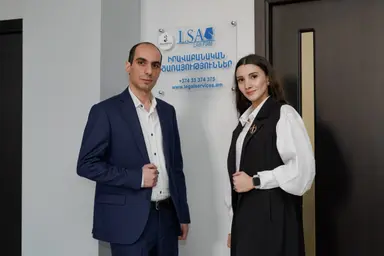Մեր ընկերությունը որակյալ փաստաբանական և իրավաբանական ծառայություններ է մատուցում ընտանեկան և ժառանգական իրավունքի տարբեր ոլորտներում՝ Հայաստանի Հանրապետության ողջ տարածքում` ներառյալ Երևանը, Գյումրին, Վանաձորը, Կապանը, Արմավիրը և այլ քաղաքներ:
Ընտանեկան իրավունքի ծառայություններ
Մեր փաստաբանները զբաղվում են ընտանեկան իրավունքի ոլորտի լայն շրջանակով, ներառյալ՝
- Ամուսնության պայմանագրերի կազմում և կնքում
- Ամուսնալուծության վարույթ
- Երեխայի խնամակալություն
- Ալիմենտի բռնագանձում
- Ամուսնական կյանքում ձեռք բերված ակտիվների բաշխում
- Ընտանեկան բռնությունների և զրպարտությունների դեմ պայքար
Ժառանգական իրավունքի ծառայություններ
Մեր թիմը մասնագիտացած է նաև ժառանգական իրավունքի ոլորտում՝ առաջարկելով աջակցություն հետևյալ հարցերում՝
- Կտակների կազմում
- Կտակից կամ օրենքից բխող ժառանգության ընդունում
- Պարտադիր ժառանգների իրավունքների պաշտպանություն
- Փաստացի գործողություններով ժառանգությունը ընդունած ժառանգների իրավունքների պաշտպանություն
- Ժառանգական վեճերի լուծում
Մեր մոտեցումը
Ընտանեկան և ժառանգական գործերով իրավաբանական ծառայություններ մատուցելիս մենք ձգտում ենք հաշտեցնել կողմերին՝ հաշվի առնելով, որ վեճերը հաճախ ներառում են ազգակցական կապեր ունեցող անձանց: Օրինակ, երեխայի խնամակալության երկարատև դատական վեճերը բացասական ազդեցություն են ունենում անչափահասի հոգեկան առողջության վրա, ինչը չի բխում ոչ հոր, ոչ էլ մոր շահերից: Մեր փաստաբանական գրասենյակը նման գործերով մշտապես վստահորդի և հակառակ կողմի հետ քննարկում է դատական գործընթացի հնարավոր բացասական ազդեցությունը անչափահաս երեխայի վրա և փորձում է կողմերին պահել կառուցողական դիրքերում:






































